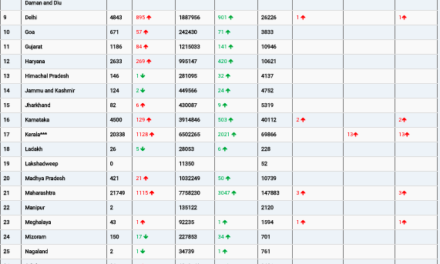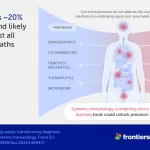In a groundbreaking study published in the prestigious journal Nature Genetics, an international team of researchers has unveiled a significant leap forward in understanding the genetic underpinnings of blood pressure. This comprehensive research effort, drawing on data from over 1 million individuals, has identified a staggering 2,000 independent genetic signals, shedding light on 113 new regions of the human genome that play a role in determining an individual’s blood pressure.
Led by Helen Warren, Senior Lecturer in Statistical Genetics at Queen Mary University of London, the study marks a pivotal moment in the quest to decipher the complexities of blood pressure regulation. Warren emphasized the magnitude of this discovery, stating, “We have now revealed a much larger proportion of the genetic contribution of blood pressure than was previously known.”
The research team’s approach involved pooling data from four extensive genome-wide association studies (GWAS) focused on blood pressure and hypertension. By amalgamating these diverse datasets, they were able to unlock a wealth of genetic insights into blood pressure variability and its role in hypertension.
One of the most remarkable revelations of the study is the recognition that blood pressure is governed by a multitude of genetic variants, underscoring its intricate nature. These newly identified genomic locations not only expand our understanding of blood pressure regulation but also elucidate a substantial portion of the genetic disparities contributing to hypertension levels across populations.
Crucially, the implications of this research extend beyond academic curiosity, holding significant promise for clinical applications. By making their polygenic risk scores data publicly available, the researchers aim to catalyze innovative approaches to address pressing healthcare challenges. Warren articulated the potential of this development, stating, “There are many different potential applications of genetic risk scores, so it will be exciting to see how our blood pressure scores can be used to address more clinically relevant questions in the future.”
The impact of this study reverberates throughout the medical landscape, offering tangible avenues for advancing precision medicine in the realm of cardiovascular health. With hypertension posing a formidable global burden and escalating the risk of cardiovascular diseases, the identification of novel genetic targets could pave the way for the development of tailored interventions and therapeutic strategies.
As the scientific community continues to unravel the intricate interplay between genetics and blood pressure regulation, this landmark study heralds a new era of personalized healthcare, poised to transform the landscape of preventive medicine.











